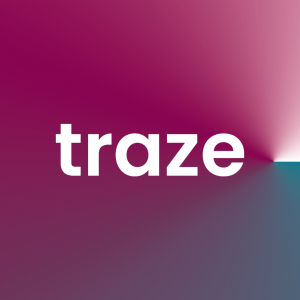
Trading in South Africa offers a wealth of opportunities for individuals looking to embark on their trading journey. Whether you’re interested in forex, stocks, commodities, or other financial instruments, it’s important to understand the basics and develop a strong foundation. In this comprehensive guide, we’ll walk you through the step-by-step process of starting trading in South Africa, providing you with valuable tips and strategies along the way.
To start trading in South Africa, begin by first understanding stock basics. Choose a reputable broker, open an account, and craft a clear trading plan with defined goals. Stay informed about market trends as you execute trades on a reliable online platform.
Key Takeaways:
- Learn the basics of trading in South Africa
- Develop a strong foundation in forex, stocks, or commodities
- Understand the trading platforms available in South Africa
- Gather valuable tips and strategies to enhance your trading skills
- Create a trading plan and stick to it
How to Start Trading in South Africa
South Africa stands as a prominent economic hub for stock trading, attracting both domestic and foreign investors. The country’s robust regulatory framework, coupled with the Johannesburg Stock Exchange (JSE) as the primary trading platform, makes it an enticing choice for those venturing into the world of stocks.
Foundations of Stock Trading in South Africa: Mastering the Basics
In the dynamic world of stock trading in South Africa, success hinges on a solid understanding of the fundamental principles. At its core, stock trading involves the buying and selling of publicly listed stocks, driven by factors such as supply and demand, company performance, and broader market sentiment.
For instance, on the Johannesburg Stock Exchange (JSE), the value of listed stocks is influenced by the intricate dance between buyers and sellers. When there’s an imbalance – more willing buyers than sellers – stock prices ascend. Conversely, if sellers outnumber buyers, prices take a downward plunge. This fundamental interplay shapes the ebb and flow of stock values on the JSE and is a cornerstone for any trader looking to navigate the market effectively.
Your Path to Stock Trading Proficiency: Navigating the JSE
The Johannesburg Stock Exchange (JSE) serves as the primary platform for stock trading in South Africa, offering a diverse range of publicly traded enterprises. To navigate this complex landscape successfully, traders must equip themselves with a profound understanding of how the JSE functions.
For instance, when trading on the JSE, one encounters various opportunities and limitations. The diverse array of assets, including shares, bonds, and derivatives, necessitates careful consideration. A clear comprehension of the JSE’s intricacies becomes a compass, guiding traders through the market’s complexity. For instance, a trader exploring opportunities on the JSE may find that shares of tech companies exhibit higher volatility, requiring a balanced portfolio to mitigate risks effectively.
Mastering stock trading on the JSE involves not only understanding the mechanics of buying and selling but also grasping the unique features and nuances of this particular trading platform. By combining a foundational knowledge of stock trading basics with a keen awareness of the JSE’s dynamics, traders can embark on a path to proficiency in the South African stock market.
Empowering Novice Traders with Educational Resources and Crafting a Robust Trading Plan
Stock trading requires a two-pronged approach: empowering novice traders with comprehensive educational resources and guiding them in crafting a robust trading plan.
Educational Resources: A Stepping Stone for Beginners
Brokers in South Africa provide a wealth of educational resources. For those stepping into the online trading world, most brokers cover the basics, instilling the understanding that trading is about taking control of one’s destiny. These platforms offers articles, videos, webinars, and other tools, serving as a knowledge hub.
For example, when registering for a live or trading demo account with AvaTrade ZA, traders gain access to a trove of resources. These materials not only introduce the fundamentals of forex trading but also delve into advanced topics like building strategies and market analysis. It’s not just about executing trades; AvaTrade emphasises the importance of compiling a trading plan. Novice traders are encouraged to define their goals, assess risk tolerance, and determine the time they can devote to trading.
Crafting a Robust Trading Plan: Blueprint for Long-Term Success
The very essence of trading for beginners starts with a clear understanding that market behaviour hinges on the basic principles of supply and demand. Crafting a robust trading plan is the linchpin of success. This plan involves setting clear objectives, determining risk tolerance, and devising trading strategies.
For instance, a trader must identify what they want to achieve and how much risk they are willing to absorb. It’s about establishing profit goals and allocating time effectively. A crucial element in online trading is learning how to minimise losses and maximise wins, managing the risk-to-reward ratio per trade placed.
Empowering novice traders goes beyond just executing trades; it’s about building a solid foundation. Emphasis on education and the crafting of a meticulous trading plan equips traders with the tools needed to navigate the complexities of the market, instilling confidence and paving the way for long-term success.
Embarking on Your Trading Journey: Executing Informed Trades and Tailoring Strategies to Your Goals
Embarking on a successful trading journey involves not only executing informed trades but also understanding the nuances between investing and trading, tailoring strategies to align with individual goals.
Executing Informed Trades: The Key to Success
When stepping into the trading arena, keeping a watchful eye on the markets and conducting thorough stock research are paramount. For instance, on the Johannesburg Stock Exchange (JSE), traders need to be vigilant in their analysis of diverse assets, including shares, bonds, and derivatives. This informed approach ensures that trades are based on a comprehensive understanding of market dynamics.
A practical example is observing the supply and demand dynamics. If there are more willing buyers than sellers, prices are likely to rise, and vice versa. By staying attuned to market trends and leveraging research tools, traders can make informed decisions, enhancing the potential for success in their trading journey.
Investing vs. Trading: Aligning Strategies with Goals
Distinguishing between long-term investing and short-term trading is crucial for tailoring strategies to individual goals. Long-term investing involves holding stocks for extended periods, typically years, while short-term trading aims for quick returns through frequent transactions.
Consider a scenario where an investor purchases shares with the intention of holding them for several years, anticipating gradual price appreciation. On the flip side, a day trader may engage in frequent buying and selling, leveraging short-term price fluctuations to generate rapid returns.
Understanding these distinctions helps traders align their strategies with their financial objectives. Whether aiming for steady long-term growth or capitalising on short-term opportunities, tailoring strategies to individual goals is the key to a successful trading journey.
Beginning your trading journey requires a delicate balance between executing informed trades and aligning strategies with specific goals. By mastering these aspects, traders can navigate the complexities of the market with confidence, potentially reaping the rewards of their investment endeavors.
Strategic Instrument Selection: Balancing Risk and Reward and Risk Management: Leveraging Tools to Safeguard Trades
Choosing the right financial instruments and implementing effective risk management strategies are crucial components of a successful trading approach, allowing traders to balance risk and reward.
Balancing Risk and Reward through Strategic Instrument Selection
When building a trading portfolio, careful consideration of financial instruments is essential. For instance, tech stocks may present lucrative opportunities, but their inherent volatility requires a cautious approach. A balanced portfolio mitigates risks, distributing capital across different assets to guard against market reversals.
Consider a trader allocating funds to diverse instruments such as stocks, ETFs, commodities, indices, CFDs, and bonds. By diversifying across various asset classes, the trader minimises the impact of a downturn in a specific market, ensuring a more stable overall portfolio.
Leveraging Tools for Effective Risk Management
In the dynamic world of trading, safeguarding trades involves implementing robust risk management strategies. Brokers like AvaTrade South Africa facilitate this with powerful trading platforms offering features like limit orders. These tools enable traders to set specific prices for buying or selling, providing control over pricing and reducing the risk of sudden market fluctuations.
Imagine a trader using limit orders on AvaTrade’s MetaTrader 4 platform. By setting predefined entry and exit points, the trader can manage potential losses and gains more effectively. This proactive approach to risk management is essential for preserving capital and ensuring a sustainable trading journey.
Balancing risk and reward involves not only selecting the right instruments but also leveraging tools to manage potential downsides. Traders who master these aspects can navigate the markets with greater confidence, fostering a strategic and disciplined approach to trading.
Navigating the Trading Landscape: Key Decisions and Continuous Learning
When venturing into the realm of online trading, pivotal decisions such as choosing the right trading platform, engaging in continuous learning, and ensuring accessibility and security become the cornerstones of a successful trading journey.
Choosing the Right Trading Platform: A Make-or-Break Decision
Selecting a trading platform is a critical decision that can significantly impact a trader’s experience. For example, AvaTrade South Africa stands out with its world-class platforms, including MetaTrader 4, ZuluTrade, and AvaOptions. These user-friendly interfaces provide up-to-the-minute pricing and rapid trade executions, ensuring traders have the tools they need for seamless market engagement.
Continuous Learning: Adapting to Dynamic Markets
In the fast-paced world of financial markets, continuous learning is imperative. Traders need to stay abreast of macroeconomic variables, market trends, and the latest news to make informed decisions. A number of brokers in South Africa supports traders with a plethora of resources, including economic analyses, technical and fundamental factors, to facilitate ongoing learning. This commitment to education equips traders with the knowledge to adapt to dynamic market conditions.
Embarking on Online Trading: Accessibility and Security
The accessibility of online trading has democratised market participation. With stable internet access and a funded trading account, traders can easily engage in stocks, commodities, forex, indices, bonds, and cryptocurrencies. Reputable brokers ensure a secure online trading environment, investing time, money, and resources to safeguard their platforms.
Consider a trader, benefitting not only from the convenience of online trading but also from the peace of mind that comes with robust security measures. By avoiding potentially sketchy websites and brokers, traders can focus on harnessing the profit potential of online trading, confident in the safety of their transactions.
In conclusion, the success of online trading lies in making informed decisions, continuous learning, and ensuring a secure and accessible trading environment. By aligning with reliable platforms and staying informed, traders can navigate the dynamic markets with confidence and agility.
Financial Considerations in Trading: Costs, Margins, and Tailoring Capital
Understanding costs and margins is pivotal for traders, as it directly impacts their trading funds and overall success in the financial markets.
Understanding Costs and Margins: Crucial Considerations
Costs and margins play a significant role in shaping a trader’s financial landscape. For instance, trading on the Johannesburg Stock Exchange (JSE) involves varying costs and margin requirements. Trading JSE-listed shares may incur commission charges, while trading forex pairs typically incurs spread charges. Positions held overnight can attract finance charges, adding an additional layer of consideration for traders.
Consider a scenario where a trader wishes to buy R100,000 worth of JSE-listed shares. With a margin requirement of 20%, the trader needs a deposit of R20,000 (20% of R100,000) to place the trade. Understanding these costs and margin requirements is crucial for effective capital management in trading.
Determining Trading Funds: Aligning Capital with Goals
Tailoring trading funds to align with goals is a strategic aspect of successful trading. For instance, a trader may consider the feasible expectation of annualised returns to determine the necessary capital. If a trader aims for a 50% return per annum on R1,000,000, they would generate R500,000. However, achieving a 50% return consistently is challenging, highlighting the importance of realistic goal-setting.
In the context of risk capital allocation, short-term trading accounts are often recommended to be a smaller proportion (10% to 25%) of a total investment portfolio. Leverage, which magnifies profit or loss, must be considered when determining the funds needed. The riskier the financial instrument, the higher the potential return but also the greater the risk. Traders need to strike a balance between potential returns and the level of risk they are comfortable with.
In conclusion, a nuanced understanding of costs, margins, and determining trading funds is vital for traders seeking success in the financial markets. By carefully managing costs, leveraging margins judiciously, and aligning trading funds with realistic goals, traders can navigate the complexities of trading with a balanced and strategic approach.
Understanding Forex Trading in South Africa
Forex trading is a popular choice for many traders in South Africa. It offers the opportunity to buy and sell currency pairs and profit from exchange rate fluctuations. To navigate the forex market effectively, it’s crucial to understand how it works, the available currency pairs, and the factors that impact market movements. Whether you’re new to forex trading or looking to improve your strategies, this section will provide you with valuable insights and essential tips to set you on the path to success.
How Does Forex Trading Work?
Forex trading involves the simultaneous buying of one currency and the selling of another, known as currency pairs. The goal is to profit from the difference in exchange rates between the two currencies. These transactions take place in the decentralised global forex market, accessible 24 hours a day, five days a week. Individuals can trade currencies online through various forex trading platforms available in South Africa.
Choosing the Right Trading Platform
When getting started with forex trading in South Africa, it’s essential to choose a reliable and user-friendly online trading platform. Look for platforms that offer a wide range of currency pairs, advanced charting tools, real-time data feeds, and secure payment options. Some popular forex trading platforms in South Africa include MetaTrader 4 (MT4), MetaTrader 5 (MT5), cTrader, and the proprietary platforms offered by local brokers.
Key Forex Trading Strategies
Developing effective trading strategies is crucial for success in forex trading. Here are a few popular strategies to consider:
- Trend Following: This strategy involves identifying and following prevailing trends in the market.
- Range Trading: Traders using this strategy aim to profit from price movements within a defined range.
- Breakout Trading: This strategy focuses on entering trades when prices break through significant support or resistance levels.
- News Trading: Traders using this strategy capitalise on market volatility surrounding major economic news releases.
Valuable Forex Trading Tips
Here are some important tips to keep in mind as you embark on your forex trading journey:
- Education is Key: Take the time to learn and understand the fundamentals of forex trading. There are many online resources, courses, and tutorials available to help you expand your knowledge.
- Practice with Demo Accounts: Before risking real money, use demo accounts to practice and refine your trading strategies.
- Manage Your Risks: Implement proper risk management techniques, such as setting stop-loss orders and not risking more than a certain percentage of your trading capital on any single trade.
- Keep Track of Economic Events: Stay informed about economic news releases and events that can impact currency markets.
Getting Started with Stock Trading in South Africa
Stock trading in South Africa provides individuals with the opportunity to buy and sell shares of publicly listed companies. The Johannesburg Stock Exchange (JSE) is the primary stock trading platform in South Africa, playing a key role in the country’s economy. Aspiring stock traders must possess a solid understanding of how stock trading works and the necessary steps to start their journey. In this section, we’ll guide you through the process of getting started with stock trading in South Africa, from understanding the basics to selecting a stockbroker and opening an account.
Understanding Stock Trading Basics
Before diving into the world of stock trading, it’s crucial to familiarise yourself with the basics. Stocks represent partial ownership of a publicly listed company. By buying and selling stocks, traders aim to profit from price changes and dividend payments. Here are some key terms to understand:
- Shares: Units of ownership in a company
- Stock Market: A marketplace where stocks are bought and sold
- Stock Exchange: An organised platform facilitating stock trading
- Bull Market: A market trend characterised by rising stock prices
- Bear Market: A market trend characterised by falling stock prices
Selecting a Stockbroker
A stockbroker serves as an intermediary between you and the stock market. They facilitate the buying and selling of stocks on your behalf. When selecting a stockbroker in South Africa, consider the following factors:
- Regulation: Ensure the stockbroker is regulated by the Financial Sector Conduct Authority (FSCA).
- Costs: Compare brokerage fees, transaction costs, and any additional charges.
- Trading Platform: Evaluate the stockbroker’s trading platform for ease of use and available features.
- Research and Analysis: Consider the stockbroker’s research and analysis tools to make informed investment decisions.
Opening a Stock Trading Account
Once you’ve selected a stockbroker, the next step is to open a stock trading account. This involves completing the necessary paperwork, providing identification documents, and depositing funds into your account. Stockbrokers may have different account types, such as individual or joint accounts, and may require a minimum deposit. It’s important to follow the stockbroker’s instructions and meet the necessary requirements.
Building a Stock Trading Strategy
A successful stock trader develops a trading strategy based on thorough analysis and research. Consider the following when building your stock trading strategy:
- Research: Analyse a company’s financials, industry trends, and news to make informed investment decisions.
- Diversification: Spread your investments across multiple stocks and sectors to minimise risk.
- Risk Management: Set risk tolerance levels and use stop-loss orders to protect against significant losses.
- Long-Term vs. Short-Term: Decide whether you’re pursuing short-term gains through day trading or long-term investments.
Trading Tips for South African Beginners
Here are some useful trading tips for beginners in South Africa:
“Begin with a small investment: Start with a small amount to gain experience and learn from any mistakes.”
“Stay updated: Regularly monitor financial news and company earnings reports to stay informed about market trends.”
“Practice risk management: Use stop-loss orders and diversify your investments to manage risk effectively.”
| Stock Trading Tips for South African Beginners |
|---|
| Start with a small investment |
| Stay updated with financial news |
| Practice risk management |
Exploring Other Trading Options in South Africa
In addition to forex and stocks, there are other trading options available in South Africa, such as commodity trading. Commodity trading involves buying and selling commodities like gold, oil, or agricultural products. Understanding the unique characteristics of each market and the strategies involved is crucial for success. In this section, we’ll explore the different trading options in South Africa and provide you with valuable insights and strategies to help you navigate these markets.
Choosing a Trading Strategy and Developing a Trading Plan
Developing a trading strategy and creating a trading plan is essential for any trader, regardless of their level of experience. A trading strategy defines your approach to the market and the specific criteria you’ll use to make trading decisions. A well-thought-out strategy can greatly increase your chances of success in the volatile world of trading.
Trading Tips:
- 1. Educate Yourself: Take the time to learn about different trading strategies and techniques. Stay updated on market trends and news that could impact your trades.
- 2. Start Small: Begin with a small investment and gradually increase your trading size as you gain confidence and experience.
- 3. Diversify: Don’t put all your eggs in one basket. Consider diversifying your portfolio by trading different assets or markets.
- 4. Practice Risk Management: Set stop-loss orders and determine your risk tolerance before entering a trade. Stick to these limits to protect your capital.
- 5. Analyse and Evaluate: Regularly review your trades and analyse your performance. Identify areas for improvement and adjust your strategy accordingly.
When developing your trading plan, consider the following:
- 1. Goals: Define your short-term and long-term goals. Are you trading for income, wealth accumulation, or a specific financial milestone?
- 2. Risk Tolerance: Assess your risk tolerance level and determine the maximum amount of capital you are comfortable risking on each trade.
- 3. Time Commitment: Determine how much time you can dedicate to trading. Will you be a full-time trader or have limited hours for trading?
- 4. Entry and Exit Strategy: Establish clear criteria for entering and exiting trades. Define the indicators, signals, or patterns that will trigger your entry and exit points.
- 5. Money Management: Decide how much capital you will allocate to each trade and establish rules for position sizing and leverage usage.
By carefully considering these aspects and developing a solid trading plan, you’ll be ready to confidently navigate the markets and make informed trading decisions that align with your goals and risk tolerance.
Conclusion
Getting started with trading in South Africa can open up a world of opportunities and potential profits. By understanding the basics, selecting the right trading strategies, and developing a solid trading plan, you can significantly enhance your chances of success in the financial markets.
Continuous education is key to becoming a proficient trader. Stay updated with market trends, attend webinars, and read books or articles relevant to trading. The more knowledge and insights you gain, the better equipped you’ll be to make informed trading decisions.
Proper risk management is essential to protect your capital. Set realistic risk thresholds for each trade and use stop-loss orders to limit potential losses. Remember that even experienced traders have losing trades. It’s important to remain disciplined and stick to your trading plan.
As you progress on your trading journey, be open to adapting and refining your strategies. Financial markets are dynamic, and what works today may not work tomorrow. Stay flexible and willing to learn from both successes and failures.
FAQ
To start trading in South Africa, you’ll need to follow a few key steps. First, educate yourself about the different types of trading, such as forex, stocks, and commodities. Next, choose a reliable online trading platform and open an account. Then, develop a solid trading strategy, create a trading plan, and practice proper risk management. Finally, start trading with a demo account to gain experience before risking real money.
Forex trading in South Africa involves buying and selling currency pairs to profit from exchange rate fluctuations. Traders speculate on whether a currency will appreciate or depreciate against another currency. The forex market is open 24 hours a day, five days a week, and is the largest financial market globally. Understanding how currency pairs work, the factors that impact exchange rates, and using technical and fundamental analysis are essential for success in forex trading.
To start stock trading in South Africa, you’ll need to understand the basics of the stock market and how it works. Start by familiarising yourself with the Johannesburg Stock Exchange (JSE), the primary stock trading platform in South Africa. Next, choose a reputable stockbroker, open a trading account, and deposit funds. Once you have your account set up, you can start researching and selecting which stocks to buy and sell.
In addition to forex and stocks, South Africa offers trading opportunities in commodities. Commodity trading involves buying and selling different commodities, such as gold, oil, or agricultural products. Each commodity market has its unique characteristics, and traders need to understand the supply and demand factors, market trends, and trading strategies specific to each commodity.
Choosing a trading strategy requires understanding your risk tolerance, preferred trading style, and the market conditions you wish to trade in. There are various trading strategies available, such as trend following, range trading, breakout trading, and more. Once you have selected a strategy, you can develop a trading plan that outlines your goals, risk management rules, entry and exit criteria, and trade monitoring techniques.

















